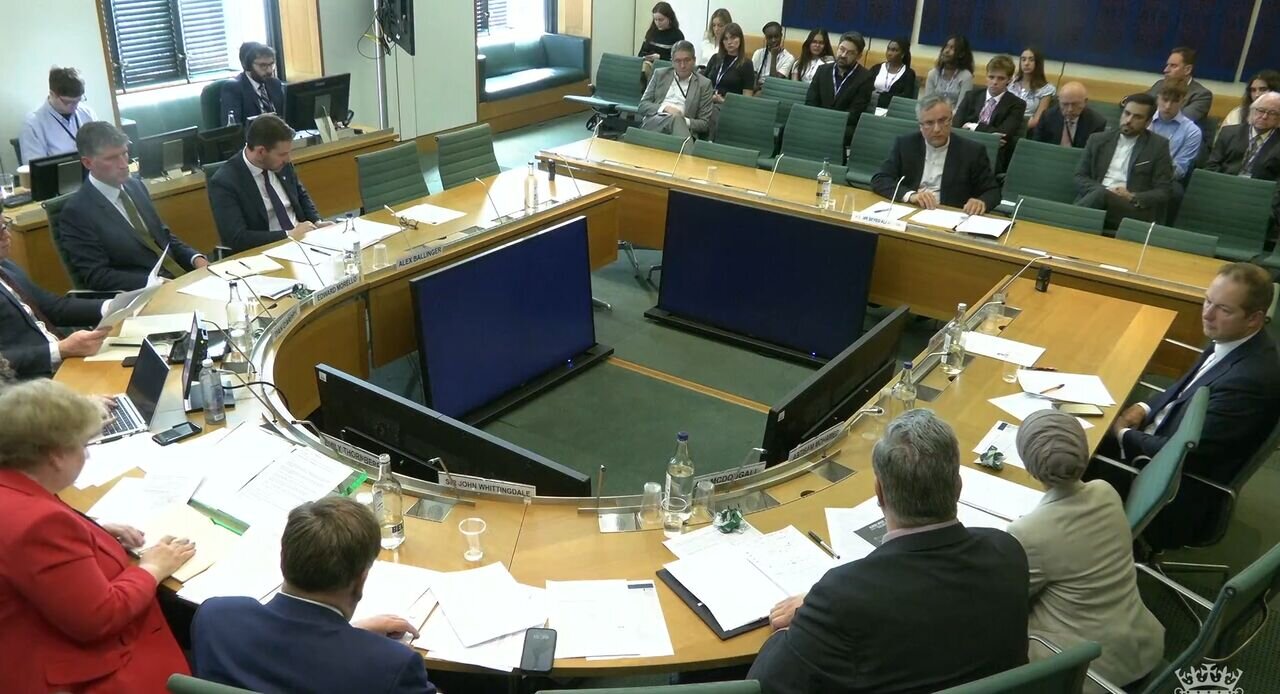Iran will exit NPT if vital interests threatened, envoy warns UK Parliament

TEHRAN – Iran’s Ambassador to the United Kingdom, Ali Mousavi, issued a stern warning during a heated session of the British Parliament’s Foreign Affairs Committee on June 17, emphasizing that Iran is a legitimate sovereign state, and declaring that Tehran reserves the right to withdraw from the Nuclear Non-Proliferation Treaty (NPT) under Article 10 if its vital national interests are jeopardized.
The session focused on regional escalation, Iran’s nuclear activities, and diplomatic paths forward. Mousavi pushed back forcefully against the “hostile rhetoric, biased narratives, and double standards” from Western officials.
Asked about speculation that Iran may exit the NPT, Mousavi said such decisions fall under the authority of Iran’s independent parliament.
“According to Article 10, if a signatory’s vital interests are threatened, withdrawal is a legal option. There’s no ambiguity,” he said, holding up photos of Iranians killed in recent Israeli attacks. “We are accountable to these people.”
He reiterated that Iran remains in the NPT for now, and that its religious doctrine and defense policy prohibit the development or use of weapons of mass destruction, including nuclear arms—citing a binding fatwa issued by the Leader of the Islamic Revolution.
Emily Thornberry, Chair of the Foreign Affairs Committee, later shared parts of Mousavi’s remarks on social media platform X, stressing the need to return to diplomacy.
‘Israeli attack violated international law’
Mousavi began his remarks by condemning Israel’s recent military strike on Iranian territory as a “blatant violation of the UN Charter and international law,” calling the action a serious threat to global security.
He described the strike as a “terrorist and criminal act” that crossed every red line, particularly by targeting a civilian nuclear facility operating under full IAEA supervision.
Rejecting Israel’s claims of “targeted precision,” Mousavi said the strikes hit civilian infrastructure, homes, hospitals, and oil refineries.
“More than 220 civilians, including women and children, were martyred, and nearly 1,500 others injured,” he said.
He condemned the direct attack on Iran’s national broadcaster during a live broadcast as a “deliberate war crime” and “an attempt to silence the voice of truth,” accusing Israel of being “the greatest enemy of media freedom.”
Mousavi also criticized the United States, accusing Washington of direct complicity through its military, intelligence, and political support for Israel.
“The U.S. must be held legally accountable. Any country aiding Israel in this aggression is also responsible under international law,” he said.
The ambassador noted that the Israeli assault came just days before scheduled indirect talks with the U.S. in Oman.
“Iran came to the table with a constructive proposal, but the U.S., by backing Israel’s attack, derailed the diplomatic process,” he said.
He reiterated that Iran’s missile response was defensive, proportionate, and lawful under Article 51 of the UN Charter, stressing that Iran did not target civilians.
Mousavi expressed frustration with the UN Security Council’s failure to condemn the attack, saying its silence had weakened its credibility. He urged the UN and independent states to take concrete steps to halt Israel’s aggression.
Asked whether Iran planned to escalate tensions or close the Strait of Hormuz, Mousavi replied, “Iran’s consistent priority has been diplomacy. We've repeatedly said regional issues must be resolved through dialogue. But talks are meaningless while Israel continues bombing Iranian infrastructure and civilians.”
Leave a Comment